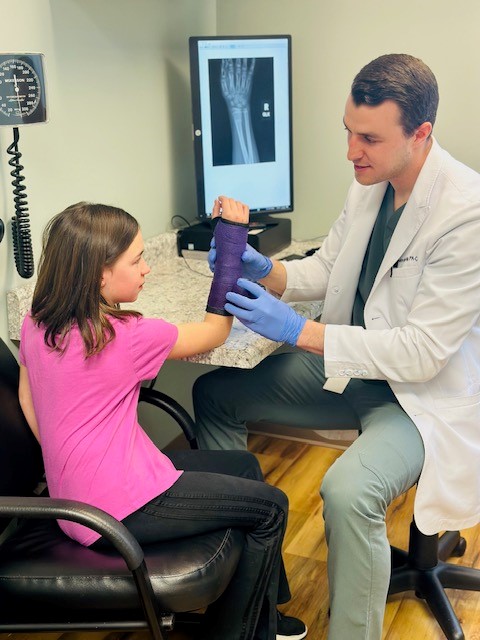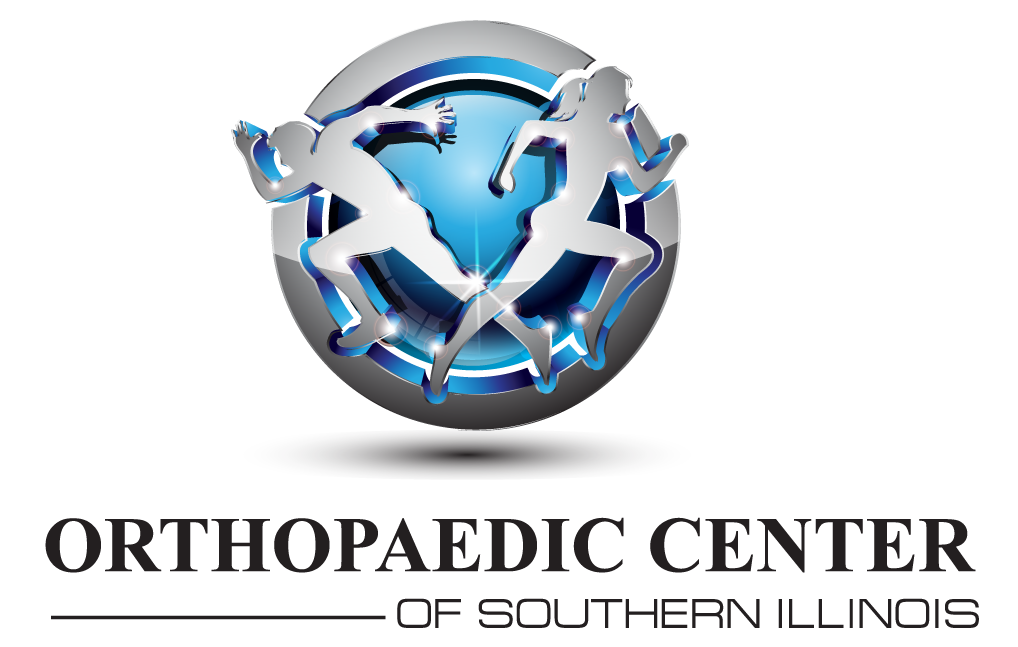Braedon Haertling, PA-C
Braedon Haertling, PA-C is a Physician Assistant with a background in kinesiology. He is able to provide Orthopaedic assessments, treatment, follow-up care, education for patients, and assist in surgery.
Braedon graduated from the University of Kentucky with a Masters of Medical Science in Physician Assistant Studies in June 2019. He belongs to the American Academy of Physician Assistants [AAPA] and the Illinois Academy of Physician Assistants [IAPA]. During his studies at UK, he was chosen for the Deans™ Interprofessional Honors Colloquium.
Braedon received his undergraduate degree at Southern Illinois University - Edwardsville where he received a Bachelors of Science in Kinesiology and was nominated as Outstanding Student in the Department of Allied Health.
Braedon has clinic at Mt. Vernon and Centralia locations and is on the OrthoExpress Team. To schedule an appointment, please click here.
Physician Assistant
A Physician Assistant (PA) is a healthcare professional who is trained to practice medicine as part of a team with a physician. Physician Assistants are concerned with preventing and treating human illness and injury by providing a broad range of health care services that are traditionally performed by a physician. Physician Assistants conduct physical exams, diagnose and treat illnesses, order and interpret tests, prescribe medications, counsel on preventative health care and may assist in surgery.

Total Joint Replacement FAQ
Will I Stay in the Hospital After Surgery?
You can plan for at least 1 night in the hospital after surgery. Sometimes patients need to stay 2-3 nights. Some patients choose to go to a skilled care facility, or a swing bed facility. Most go home upon discharge. You will need to have a responsible adult at your home for the first week or so.
Insurance has specific requirements that patients must meet to be accepted into a skilled care facility, inpatient rehab, or swing bed facility. Please be aware that Medicare may not cover a skilled nursing facility stay following elective surgery. Coverage typically depends on meeting specific medical criteria, including a qualifying inpatient hospital stay and a demonstrated need for skilled care.
Once home, we will order Home Health Services. If approved through your insurance, a Nurse and Physical Therapist will visit you a few times a week once you arrive home. They may request further services, like Occupational Therapy.
Outpatient Physical Therapy will be ordered for you to attend at a facility of your choice after you are released from Home Health, or if Home Health is not approved through your insurance. You will have outpatient physical therapy for about 6 weeks after surgery. Physical therapy is VERY important to your healing process.
Will I Need Equipment at Home? What About Medication?
Yes. You will need a walker, and perhaps other equipment, like a bedside commode or toilet riser. Total Knee arthroplasties are ordered a continuous range of motion device (CPM) or ROMTECH device. The equipment will be ordered for you by the Social Worker at the hospital prior to your discharge based on your type of surgery. They can be picked up at a local equipment store.
When you leave the hospital, you will be prescribed pain medication and a blood thinner. These will be sent to the pharmacy of your choice. The Blood thinner is a very important medication for you to take. It will help prevent blood clots, otherwise known as deep vein thrombus (DVT), which is a potential complication after total joint surgery. Sometimes blood thinner can be expensive at the pharmacy. If this happens, we have access to coupons or samples.
When Will I Need to Follow Up in Your Office After Surgery?
You will see a provider 2 weeks after surgery. Then you will be seen at 6 weeks, 12 weeks and 1 year after surgery. We will obtain X-rays and evaluate your healing, progress and address any concerns you may have. If you have a total hip arthroplasty, you will not have any sutures or staples removed. If you have a total knee arthroplasty, the clinic staff will remove your staples at your first post operative appointment.
When Can I Drive After Surgery?
If you drove prior to surgery, you can expect to be able to drive after surgery at about 4-6 weeks post op. This would depend on if you had the right or left leg operated on, if you drive an automatic or manual vehicle. You will not be allowed to drive if you are still taking narcotics.
What Do I Ned to do to Prepare for Surgery?
You will need preoperative clearance from your medical provider. If you see a cardiologist, we will need clearance from them as well. Our surgical scheduler will send your family physician/cardiologist the clearance form to be completed, but you will need to schedule an appointment with your family physician to get it completed.
You will be required to attend a Total Joint class at Good Samaritan Hospital. The class is led by one of the nurses at the hospital. She will give you information on the surgical process and can answer a lot of questions you may have regarding your hospital stay. At this class, you will meet with the hospital case manager supervisor/social worker, home health nurse to learn about post operative therapies and services.
Is There Anything I Need to Know After My Surgery?
Yes! After surgery, we would like you to postpone any non-urgent dental appointments for 3 months. Of course, if you have something urgent that needs taken care of, please do so. After the initial 3 months, if you do have a dental appointment, we require you to take pre-dental antibiotics. This is to help prevent any infection. We also will order you pre-procedure antibiotics if you need to have any gastrointestinal procedures, like a colonoscopy. Just call our office and let us know before your appointment and our nurses will send the antibiotics in to your pharmacy.
What Things Are Normal After Surgery?
You may hear a click when you walk. This is normal. You may notice the operative leg is more swollen or warm to touch than the other leg. Swelling and warmth can be normal for a period of time after surgery. You had big surgery! However, if you ever have concerns about ANYTHING in your post operative period, we are available to talk to you.
Are There Any Things to Look for After Surgery?
Calf pain, calf swelling, calf redness, feeling like you have a Charlie horse- these can be signs of a blood clot. Doing range of motion, walking, taking blood thinner, and wearing the TED hose can help prevent this risk. Constipation can occur after surgeries, especially if you are taking a narcotic. An over-the-counter stool softener such as Colace, Dulcolax or MiraLAX can help, as well staying hydrated and eating fiber rich foods. Not having a bowel movement can be very uncomfortable but also can become a big issue if not resolved.
If you were to experience any of these complications, we would ask you to call our office at 618-242-3778. If after hours or the weekend call the hospital at 618-242-4600 to have the hospital page our on-call surgeon or go to the Emergency Room for treatment.
Infection, Blood clots and constipation are 3 things we would like you to keep your eye out for after surgery.
We will ask you to monitor yourself for signs and symptoms of infection, things like fever, chills, foul odor, drainage.

